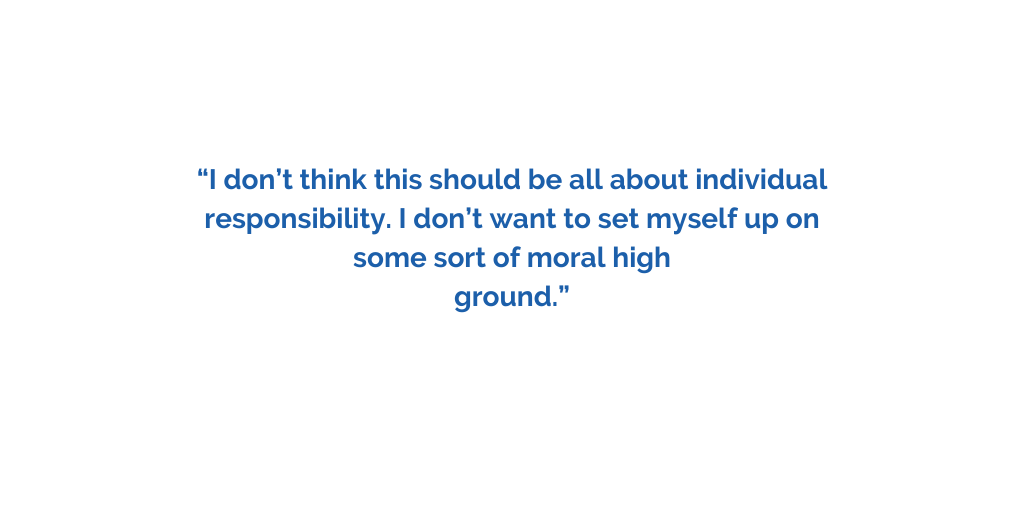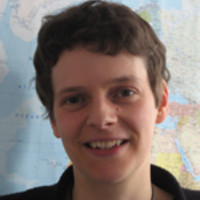Academics Who Travel Better: Dr. Rachel Howell
Sonya Peres in an intern with EAUC-Scotland who is currently carrying out a travel project with funding from the Responsible Universities Group Scotland. In this blog, she talks to Dr. Rachel Howell, a lecturer in Sociology/Sustainable Development at the University of Edinburgh, who has successfully eliminated air travel from her career as an academic.
When I began my internship in October, one of the first events I attended was Visions for Change: rethinking emissions from business travel. The event was hosted by the University of Edinburgh’s Department for Social Responsibility and Sustainability and featured a panel of experts discussing the implications of growing flying emissions from business travel. One of the experts was Dr. Rachel Howell, a lecturer in Sociology/Sustainable Development at the University of Edinburgh.
Dr. Howell hasn’t flown since 2003 and since hearing her speak, I have been excited about the possibility of chatting with her one-on-one. When deciding to develop the mini-series, Academics Who Travel Better, Dr. Howell was one of the first individuals that came to mind to feature. I was fortunate enough to speak to her over Zoom this past week and learn more about her life as an academic who travels better.
How and why did Dr. Howell begin to address air travel?
Dr. Howell’s commitment to not flying precedes her career in academia. As a teenager, she was deeply troubled by global injustices, a concern that she carried into adulthood, leading to years volunteering with society’s most marginalised populations and a lifelong motivation to engage in behaviour that will protect the planet and its most vulnerable people. For Dr. Howell, air travel and climate change represent an issue of inequality: the world’s rich (which includes almost everyone involved in academia in the Global North) fly all over the world propelling climate change, a crisis that will disproportionately affect vulnerable communities and the world’s poor.
Although never a frequent flyer, Dr. Howell spent years feeling vaguely uneasy about flying, though tended to push away concern. At one point, Dr. Howell considered spending some months working and studying in the United States, a tipping point in her reflections on air travel. As a trade-off for the final trip, Dr. Howell decided to stop flying, a commitment she describes as “not a religious vow, in that I didn’t intone any words, or have any ceremony, or even write anything down, I just made this very definite decision which I don’t allow myself the option to reconsider.”
Although Dr. Howell made the decision to stop flying while doing work that did not require business travel, when she decided to pursue a career in academia, she knew she would continue her commitment to not fly. During her PhD, she was able to avoid the pressure to travel by air. Afterward, when applying for jobs, she grappled with whether or not to tell prospective employers about her commitment to not flying, ultimately deciding to discuss it only if she were pressured to conduct fieldtrips abroad or take part in other overseas engagements.
But how was Dr. Howell able to stop flying?
Many factors contributed to Dr. Howell’s success in eliminating air travel. Firstly, her large family lives in Britain, enabling her to visit them by train. However, friends live in the United States. Dr. Howell explains that the “loves miles” are harder to confront than work travel, but her decision to stop flying becomes easier and easier with every year. In fact, one long-distance friendship has been made stronger because of frequent detailed emails.
Dr. Howell’s discipline has also been an advantage. As she studies pro-environmental behaviour change and sustainable lifestyles, many in her field understand and empathise with her decision, and her work and teaching gains more credibility as she is able to “walk the talk.”
Also, Dr. Howell’s primary focus is on teaching. Although she enjoys research, it falls secondary to teaching and is perhaps responsible for the lack of obligation she feels to travel by flight.
As we move forward, Dr. Howell would like to see more efforts from the sector and the government in reducing air travel. She says to me, “I don’t think this should be all about individual responsibility. I don’t want to set myself up on some sort of moral high ground.”

Specifically, Dr. Howell hopes to see online conferencing and remote attendance to in-person conferencing normalised, saying, “it needs to be a part of every conference. It needs to become completely usual.” She also wants to see universities make available extra money for academics to travel by train so that travelling by train within Europe becomes the norm.
Dr. Howell wants the Scottish and UK governments to take their commitments about climate change seriously and to really understand that we are in a climate emergency. For example, she believes the Government should ban all flights within Britain. As COVID-19 affects the airlines, Dr. Howell believes that instead of governments bailing out airlines after the pandemic, the money should be used to re-train individuals in the industry to work in more sustainable sectors, to ensure a just transition to a sustainable society.
Thank you, Dr. Rachel Howell for sharing your journey and inspiring others to reflect on their relationship to air travel.
This blog was written in March 2020.












